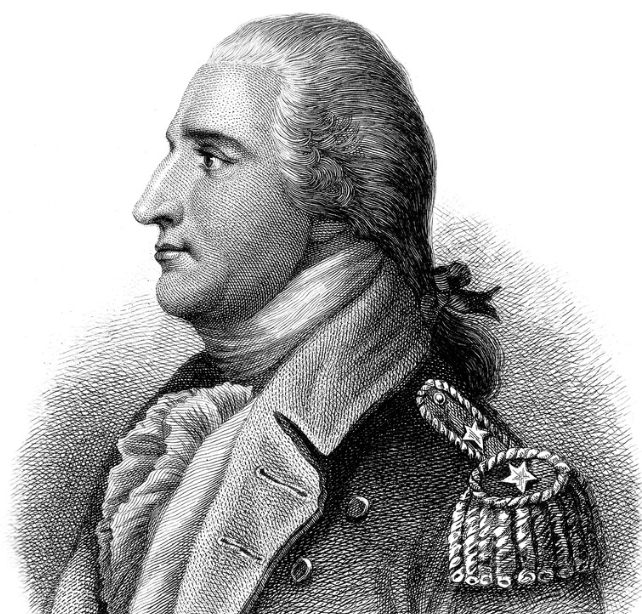Benedict Arnold - 8 Reasons For His Treason
Benedict Arnold is perhaps America's most famous traitor. But what would make a man bail on his country right as it was being created?
Below is a list of turning points in Arnold's military career that made him decide the people in charge of the American Revolution were not fit to run a nation.
Please keep in mind that, though he was self-centered and conceited, Benedict Arnold's treason was so important because he was the Continental Army's most successful General.
Before you read this article, I recommend you check out yesterday's post which recounts Arnold's heroics. The information provided below backtracks through the first article, noting the insults Benedict received along the way.
1. He Was Accused of Abusing His Position
During the retreat from Quebec, Arnold had his first issues with the politics of war.
He was accused of plundering the homes of citizens in Montreal illegally. Additionally, some officers accused him of scheming to increase his finances.
He almost received a court martial for his behavior but he was saved at the last minute by Major General Horatio Gates.
2. He Was Passed Over for Promotion
As a Brigadier General, Arnold had astounding success on the field. When the Continental Congress named new Major Generals, Benedict (reasonably) assumed he would receive a promotion.
To his surprise, Arnold was passed over in favor of lower level officers who had less success in battle. This was primarily due to political disagreements in Congress.
Although there were other contributing factors, many delegates wanted to keep the number of Major Generals as evenly divided as possible among the separate States.
Since Connecticut already had David Wooster, Arnold was left wanting.
3. Washington Refused his Resignation
As was common at the time, Benedict submitted his resignation after not receiving an expected promotion. What was not so common was General Washington’s reaction.
Washington refused to accept Arnold’s resignation.
Although he was angry at the Continental Congress, Benedict respected the Commander-in-Chief. Washington was able to convince Arnold to remain with the Continental Army by (truthfully) telling him he was one of the most important officers in America, and the war could not be won without him.
Benedict Arnold would remain a Brigadier General, but his pride was severely wounded.
4. His Seniority Was Not Restored
Soon after this insult, Arnold participated heroically in the Battle of Ridgefield. He had two horses shot out from under him and again received a bullet in his leg.
Finally, he received his expected promotion to Major General, however, his seniority was not restored over the officers who had earlier leapfrogged him.
Benedict found himself still following orders from men he had previously led.
5. He Was Relieved of Command
During the Battle of Saratoga, Arnold had serious disagreements with General Gates. This resulted in Gates removing Benedict from command for the second day of fighting.
Arnold disobeyed his command and took to the field. He was noted by almost everyone (except Gates) as the reason the Americans won this all-important battle.
This was the first example of Benedict Arnold having a specific argument with one of the main leaders of the American Revolution.
6. His Seniority Was Restored Out Of Sympathy
Due to his performance in Saratoga, Arnold’s seniority was restored to where it should have been all along.
Benedict, however, felt strongly this was based on sympathy for the wounds he received (his leg was shattered) instead of the courage he displayed.
Additionally, he would spend almost eight months recuperating. Since he could not lead troops in the field, the promotion seemed worthless.
Again, Arnold was disgusted with the politics of Philadelphia effecting the operations of winning a war.
7. He Was Court Martial in Philadelphia
After his leg healed, Benedict Arnold was named Military Governor of Philadelphia. Unlike his accomplishments in the battlefield, Arnold was not a good Governor.
Benedict used his position to make himself wealthy, profiting off the supplies being shipped into the city. This was not an uncommon practice at the time, however, Arnold had made several powerful enemies in Congress.
Led by Joseph Reed, Arnold was investigated for his actions. At his request, a court martial was held to clear his name.
Arnold was let off with just a slap on the wrist, but again his pride had been wounded. This was the last straw.
8. He Married Peggy Shippen
While Governor of Philadelphia, Arnold met and married Peggy Shippen.
Peggy was the daughter of one of the wealthiest men in the city. Although they had Loyalist sympathies, the Shippens were too important to the city to be given much trouble.
Peggy was a friend of Major John Andre, whom she put Arnold in touch with. After months of negotiation, the Andre offered to pay off Benedict Arnold’s debts as well as give him a command in the British Army.
The heroic Patriot had resigned himself to treason.
I will be traveling the streets of Historic Portsmouth, NH this week so make sure you follow Found of the Day on Instagram to learn more about the Revolutionary History of that city.
If you'd like to receive an article every day, subscribe to our email list!
To learn more about Benedict Arnold, pick up 'The Tragedy' listed below. Our book links go through Amazon at no additional cost to you.





